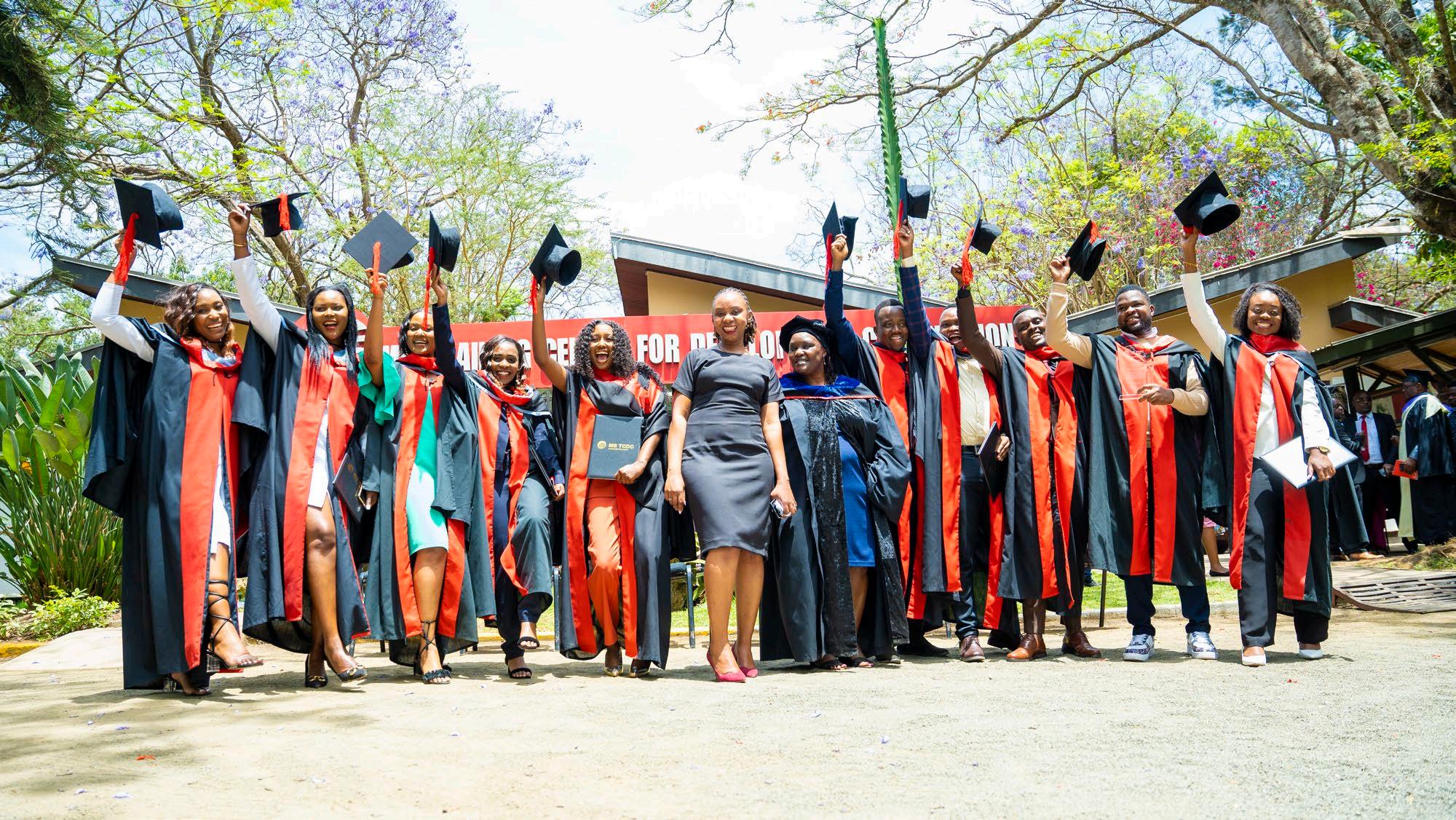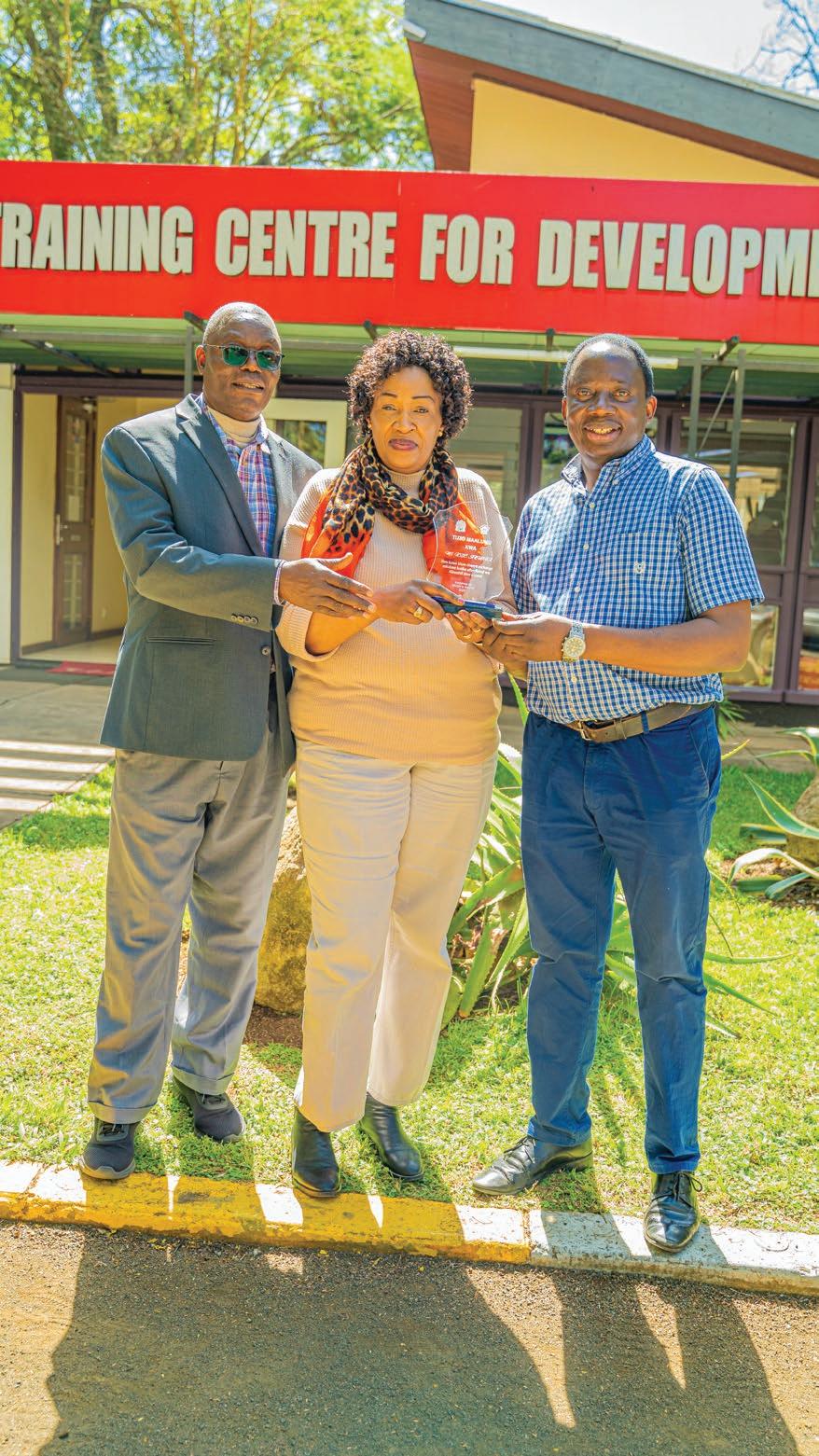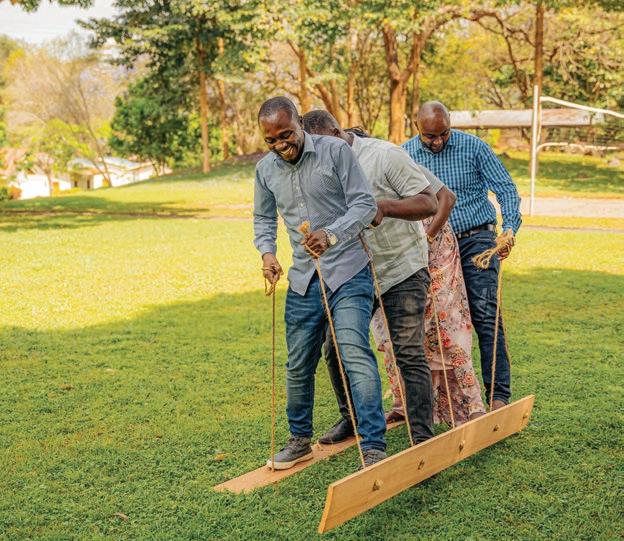
1 minute read
AWARDS
from A Year at TCDC 2023
by mstcdc
Honored for Promoting Swahili Language and Culture
July 7th was declared by UNESCO to be World Kiswahili Language Day, in recognition of the importance of the language in East Africa and beyond.
Advertisement

A SNEAK PEEK INTO THE 2023-2027 STRATEGY
Our Vision Our Mission


A just, democratic, and sustainable Africa. Develop the capacity of young leaders to become transformative leaders and strengthen institutions through facilitating social dialogue, learning interventions, and providing space networking for transformed governance in Africa.
Change Goals
Young transformational leaders at the community, national, and regional levels, contributing to inclusive and sustainable development for the continent.
Young accountable leaders influencing decision-making in the public and private sectors, to expand civic space in which citizens can exercise and enjoy their rights and liberties.
Strengthened public institutions that are responsive to emerging issues affecting citizens and ensure adherence to democratic principles and safeguard the public good.
Who We Work With
Communities
Young leaders and their allies
Public Institutions
Private Institutions
National, regional and multilateral entities supporting young transformational leaders.
Organisations

How We Work
Experiential learning for transformational leadership
Support youth with skills, knowledge, exposure, and networks to give them the ability to constructively participate in public and private sector affairs and offer transformative leadership and representation to their communities and constituencies.

Social dialogues bridging citizens and decision makers
Provide safe and conducive spaces and platforms for social dialogues through which leaders, representatives, and other duty bearers can interact with citizens on matters pertaining to public policy, with a view to ensuring that interventions are people-centered and responsive to people's needs.
African-led knowledge to tackle local challenges
Gather and curate African-led knowledge and contribute to public discourse on relevant issues improving rootedness and authenticity of evidence for advocacy work and efforts at influencing policy.







